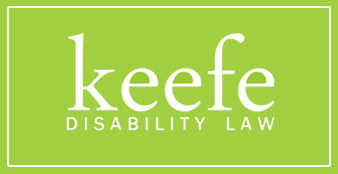Medical devices must receive the approval of the United States Food and Drug Administration (FDA) before they can be sold in the United States. However, even with FDA  oversight, some defective medical devices enter the U.S. marketplace and cause serious complications for patients.
oversight, some defective medical devices enter the U.S. marketplace and cause serious complications for patients.
If you, or a loved one, have been hurt by a medical device then you may have questions about the FDA’s role in medical device safety, the FDA recall process, and how the FDA’s actions—or inactions—are relevant to your claim. Here, our medical device injury lawyers will answer these questions for you.
How the FDA Regulates Medical Devices
The FDA has two important roles in protecting patients from potentially harmful medical devices. First, the FDA must approve the medical device. Then, once the device has been approved, the FDA must monitor its safety and take action if a medical device is resulting in injuries or deaths.
The FDA Medical Device Approval and Monitoring Process
Generally, the steps for receiving FDA approval of a medical device include:
-
Establishment registrations. Owners, or operators, of businesses that are involved in the manufacturing or production of medical devices that are intended to be sold in the United States must register with the FDA annually.
-
Medical device listings. Each manufacturer is required to list its specific medical devices that are or will be sold in the United States with the FDA.
-
Premarket notification (510(k)), if required. Medical devices cannot be sold or commercially distributed until they receive a letter of substantial equivalence from the FDA, if such a letter is required based on the class of the medical device. This letter establishes that the medical device is substantially equivalent to one that is already on the market in the United States.
-
Premarket approval, if required. Most Class III medical devices will require premarket approval from the FDA. According to the FDA, Class III devices, “are high-risk devices that pose a significant risk of illness or injury, or devices found not substantially equivalent to Class I and II predicate through the 510(k) process.”
-
An investigational device exemption, if requested and required. This would allow the device to be used in clinical studies before receiving prior premarket notification or premarket approval. The data collected in the study would be used to support the premarketing notification or premarket approval if FDA approval is ultimately sought.
-
Quality system regulation. The FDA requires medical device manufacturers to have quality control systems to ensure that their devices consistently meet the requirements they have to meet for continued FDA approval.
-
Labeling. Medical device makers must comply with the federal labeling regulations.
-
Medical Device Reporting. Manufacturers must report any incidents where the device may have caused serious injury or death to the FDA.
It is the FDA’s responsibility to approve and monitor medical devices in this way. However, the FDA cannot provide recommendations to health care providers about whether or not to use a specific product, and the FDA cannot compensate a patient who has been injured.
The FDA Medical Device Recall Process
Sometimes, after the FDA has approved a medical device, the medical device is found to result in injuries or death. In these cases, the FDA may take action by issuing a safety communication or medical device recall. Most recalls are voluntary recalls by the manufacturers once the manufacturers learn of the FDA concerns and intended action. If a manufacturer refuses to perform a recall then the FDA may issue a mandatory recall order. A recall may include anything from a label change to the removal of the medical device from the market. A specific recall strategy will be developed for each medical device that needs to be recalled to protect patient safety.
How the FDA’s Approval, Recall, or Lack of Action May Impact Your Legal Rights If You’ve Been Injured by a Defective Medical Device
The FDA’s approval and recall processes may provide relevant evidence for a medical device injury claim. It may, for example, provide important information about who knew what about the product’s safety and when they knew it.
However, regardless of the FDA’s action, or inaction, you may have the right to pursue a legal recovery if you have been hurt by a defective medical product such as an IVC filter, Essure, or another device. To learn more about your rights, please contact us today for a free, no-obligation consultation with an experienced medical device lawyer.
Are You Looking for a Mass Tort Attorney in Boston, MA?
If you have been injured by a defective medical device you need to speak with an experienced mass torts lawyer as soon as possible. Please contact us online or call our Natick Office directly at 888.904.6847 to schedule your free consultation.
|
Related Links: |


